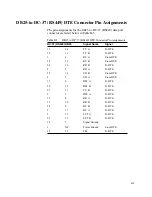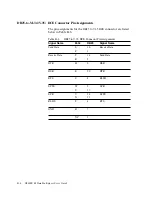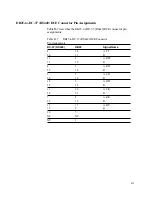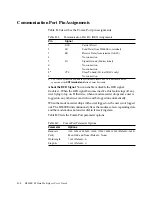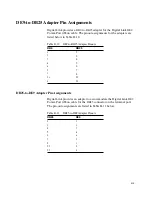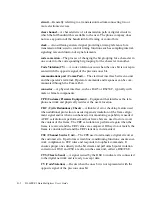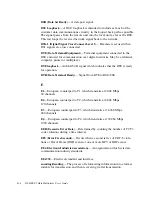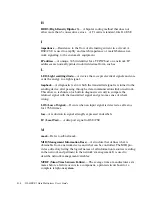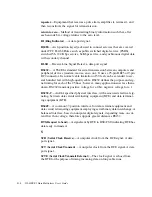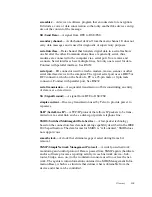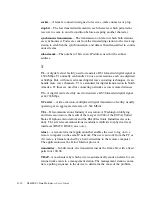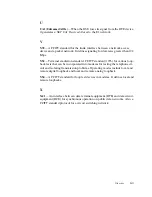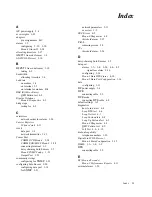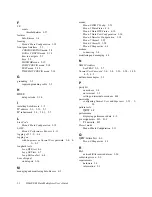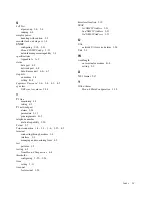
Glossary
G-9
scrambler
Ñ A device or software program that encodes data for encryption.
It distorts a voice or data conversation so that only another like device can Þg-
ure out the content of the message.
SD (Send Data)
Ñ A signal from
DTE
to
DSU/CSU.
secondary channel
Ñ A subchannel derived from the main channel. It does not
carry data messages and is used for diagnostic or supervisory purposes.
serial interface
Ñ Data channel that transfers digital data in a serial fashion:
one bit after the other. Communications lines are generally serial, thus
modems are connected to the computer via a serial port. So are mice and
scanners. Serial interfaces have multiple lines, but only one is used for data.
Contrast with parallel interface. See
RS232
.
serial port
Ñ I/O connector used to attach a modem, mouse, scanner or other
serial interface device to the computer. The typical serial port uses a DB25 or
DC9
connector, which on the back of a PC is a 25-pin male or 9-pin male
connector. Contrast with parallel port. See RS232.
serial transmission
Ñ A sequential transmission of bits constituting an entity
of data over a data circuit.
SG (Signal Ground)
Ñ A signal from
DTE
to
DSU/CSU.
simplex current
Ñ One way transmission used by Telco to provide power to
repeaters.
SLIP (Serial Line IP)
Ñ
A TCP/IP
protocol that allows
IP
packets to be trans-
mitted over a serial link, such as a dial-up or private telephone line.
SMDS (Switched Multimegabit Data Service)
ÑA fast-packet technology
based on the connection-less data networking capability described in the
IEEE
802.6
specification. The data format for
SMDS
is Òcell oriented.Ó
SMDS
does
not support voice.
smooth clock
Ñ A clock that eliminates gaps created during frame bit
removal.
SNMP (Simple Network Management Protocol)
Ñ A widely-used network
monitoring and control protocol. Data is passed from
SNMP
agents (hardware
and/or software processes reporting activity in each network deviceÑhub,
router, bridge, an so on.) to the workstation console used to oversee the net-
work. The agents return information contained in a
MIB
(Management Infor-
mation Base), which is a structure that deÞnes what is obtainable from the
device and what can be controlled.
Summary of Contents for DL600E
Page 1: ...DL600EE1 DataMultiplexer User s Guide...
Page 2: ......
Page 12: ...xiv DL600E E1 Data Multiplexer User s Guide...
Page 14: ...xvi DL600E E1 Data Multiplexer User s Guide...
Page 20: ...xxii DL600E E1 Data Multiplexer User s Guide...
Page 26: ...1 6 DL600E E1 Data Multiplexer User s Guide...
Page 34: ...2 8 DL600E E1 Data Multiplexer User s Guide...
Page 102: ...5 26 DL600E E1 Data Multiplexer User s Guide...
Page 113: ...Appendix A DL600E Technical Speci cations...
Page 122: ...A 10 DL600E E1 Data Multiplexer User s Guide...
Page 123: ...Appendix B Connector and Pin Assignments...
Page 132: ...B 10 DL600E E1 Data Multiplexer User s Guide...
Page 144: ...G 12 DL600E E1 Data Multiplexer User s Guide...

